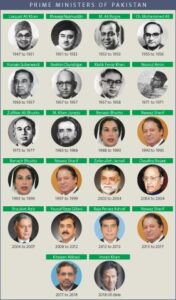Fair Observer and USI had organized an interesting discussion on India’s stand on the Ukraine crisis.
Information about the think tank and the panelists is placed at the end of the post.
The link to the video is below:-
For issue-based viewing please click on the links below:-
- Introduction by Christopher (00.00 – 01.58).
- Question about defence supplies from Ukraine and Russia to Anil Khosla. Overall perspective, factors, compulsions, mitigating actions. (01.58 – 08.27).
- Question about the greater opportunity for the western defence industry to Anil Khosla. (08/27 – 11.27).
- Question about why is the western pressure not working for Manu Sharma. (11.27 – 17.12).
- Question about why relations with Russia are important for India, to Atul Singh. (17.15 – 28.25).
- Question about strategic lessons for India, to Anil Khosla. (28.50 – 34.10).
- Question about repercussions of the collapse of the Russian defence industry, to Gen BK Sharma. (34.5 – 41.10).
- Question about alternate sources of military equipment and supplies, to Gen BK Sharma. (41.10 – 43.57).
- Q & A Session. Questions about does Russia needs India, India’s reverse leverage with Russia, and sharing of technology between western and Indian Defence companies. (43.57 onwards).
Fair Observer
Fair Observer is a US-based, independent, non-profit media organization that engages in citizen journalism and civic education. Its digital media platform has 2,500 contributors from 90 countries, cutting across borders, backgrounds, and beliefs.
Mr Atul Singh
Atul Singh is the founder, CEO, and editor-in-chief of Fair Observer. He has taught political economy at the University of California, Berkeley, and been a visiting professor of humanities and social sciences at the Indian Institute of Technology, Gandhinagar. Atul studied philosophy, politics, and economics at the University of Oxford on the Radhakrishnan Scholarship and did an MBA with a triple major in finance, strategy, and entrepreneurship at the Wharton School of the University of Pennsylvania. He worked as a corporate lawyer in London and served as an officer in India’s volatile border areas where he had a few near-death experiences. Atul has also been a poet, playwright, sportsman, mountaineer, and founder of many organizations.
Mr Manu Sharma
Manu Sharma is a contributing editor at Fair Observer. He is a political analyst with an international footprint. A dynamic, young thought leader in the field of global political research, communications strategy, public policy, and political economy, Manu has served in financial institutions, international organizations, and media bodies across four continents. He brings a formidable mix of technical skills, multicultural experience, and the ability to deliver across several time zones. Manu’s areas of professional expertise include political risk research, psephology surveys, and quantitative research papers on economic issues. He has experience in econometric research, has made media appearances, and serves as an advisory aide to top decision-makers in politics.
Major General BK Sharma, AVSM, SM and Bar (Retd)
Maj Gen BK Sharma was commissioned in the SIKHLIGHT Infantry Regiment in 1976 and superannuated in 2012. He is the Director of the United Service Institution of India (USI), India’s oldest think tank established by the British in 1870. He was conferred three military awards by the President of India for rendering exceptional distinguished national service and for displaying courage. Besides, he was conferred the national award for nation-building by the Confederation of Educational Excellence of India in 2017. He has tenanted prestigious assignments in India, including command of a mountain division on the China border and Senior Faculty Member at the National Defence College. He has represented his country at the UN as Military Observer in Central America and has been India’s Defence Attaché in Central Asia. He specializes in Strategic Net Assessment methodology, Scenario Building, and Strategic Gaming. He has visited about 35 countries as a member of international delegations and on educational tours. He has participated in 29 international conferences abroad and several such conferences in India. He has edited about 08 books, contributed more than 60 seminal papers to the Indian / foreign journals and Newspapers, and presented 30 research papers at international conferences. He edits the prestigious USI Strategic Year Book. He has lectured at the prestigious military establishment, policy think tanks, and universities, literature festivals in India and abroad.
Christopher Roper Schell
Christopher Roper Schell is a contributing editor at Fair Observer. He is currently a book editor and policy advisor. He studied British literature at Southern Methodist University and law at George Washington University. With over a decade of Capitol Hill experience working for three Members of Congress, Christopher has handled policy issues varying from the financial crisis to healthcare. After a year spent at the Pentagon as a Congressional liaison, he ran for Congress in a 2020 special election.
Suggestions and value additions are most welcome
For regular updates, please register here


